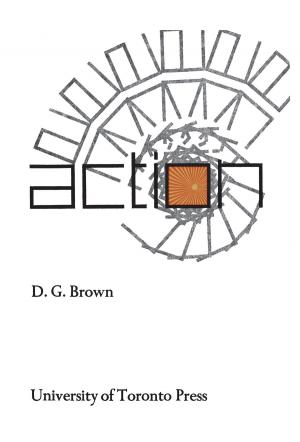The Methodological Heritage of Newton
Nonfiction, Religion & Spirituality, Philosophy, Methodology, Modern, Science & Nature, Science, Other Sciences, Philosophy & Social Aspects| Author: | ISBN: | 9781442651159 | |
| Publisher: | University of Toronto Press, Scholarly Publishing Division | Publication: | December 15, 1970 |
| Imprint: | Language: | English |
| Author: | |
| ISBN: | 9781442651159 |
| Publisher: | University of Toronto Press, Scholarly Publishing Division |
| Publication: | December 15, 1970 |
| Imprint: | |
| Language: | English |
In recent years there has been a resurgence of interest in Newton and his influence. His thought, like that of Aristotle and every other great thinker, underwent development which contemporary scholars are seeking to understand more clearly than did their predecessors, awed as they were by the overwhelming Newtonian achievement.
As the titles indicate, the range of essays included in this volume is wide, but most are concerned not so much with explaining Newton’s development as with assessing his contribution to the thought of others. They explore all aspects of the conceptual background—historical, philosophical, and narrowly methodological—and examine questions that developed in the wake of Newton’s science. The papers are varied yet unified in their attention to common themes and show the wealth of philosophical matter to be found in scientific synthesis. Newton left a rich complexity of philosophical problems whose attempted resolution helps our understanding both of method and positive science. His theories are one of the greatest achievements in physics; they are also valuable case studies for those interested in grasping the methodological and broadly philosophical basis of science.
Four of the seven essays in this volume were prepared for an international conference held at the University of Western Ontario in April 1967; the three other papers were added by the editors to supplement and unify the collection.
In recent years there has been a resurgence of interest in Newton and his influence. His thought, like that of Aristotle and every other great thinker, underwent development which contemporary scholars are seeking to understand more clearly than did their predecessors, awed as they were by the overwhelming Newtonian achievement.
As the titles indicate, the range of essays included in this volume is wide, but most are concerned not so much with explaining Newton’s development as with assessing his contribution to the thought of others. They explore all aspects of the conceptual background—historical, philosophical, and narrowly methodological—and examine questions that developed in the wake of Newton’s science. The papers are varied yet unified in their attention to common themes and show the wealth of philosophical matter to be found in scientific synthesis. Newton left a rich complexity of philosophical problems whose attempted resolution helps our understanding both of method and positive science. His theories are one of the greatest achievements in physics; they are also valuable case studies for those interested in grasping the methodological and broadly philosophical basis of science.
Four of the seven essays in this volume were prepared for an international conference held at the University of Western Ontario in April 1967; the three other papers were added by the editors to supplement and unify the collection.















